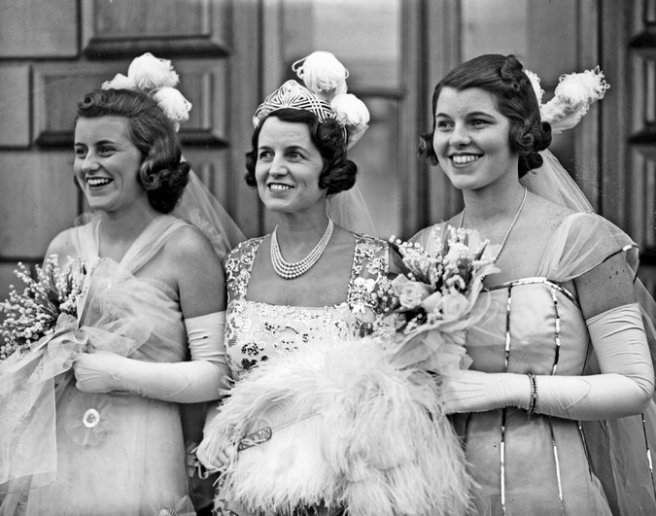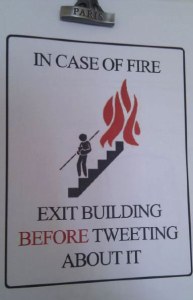Last month I shared the incredible journey of my friend, Fiona, who triumphed over adversity. She is truly an inspiration to me and everyone around her, although few know the details of her journey. Just last week, we completed our series of interviews. I’d like to share with you my completed piece. If you have any suggestions regarding what publications may be interested in Fiona’s story, please share your thoughts.
 Choose to Look Forward
Choose to Look Forward
Statistics tell us that emotional abuse is common place; often the result of a partner’s need to place blame for life’s stress on someone or something. Being overwhelmed at work, unexpected traffic, a missing sock, all happen in life. None of these things are necessarily anyone’s fault, but emotional abusers have difficulty accepting that and find the need to lash out. In doing so, they often project their feelings onto others; blaming their partner for their rage, their harsh words, and their temperament. Avoidance will only last so long before the next perceived trespass occurs and the vicious cycle starts again.
Not all emotional abuse is equal in severity or frequency. The abuser’s conduct can vary considerably outside his/her rage filled incidents. Many “short-tempered” men and woman may be otherwise good partners. Their occasional eruptions may be hard to forgive, but not the norm. Others accelerate their behavior to the point where their partner is emotionally harmed, experiencing lack of confidence, anxiety and/or depression. In severe cases, abusers become violent; especially when their behavior no longer elicits the desired response or they fear they are losing control.
If you met Fiona today, you’d have a hard time believing she endured severe emotional abuse at the hands of her husband. You would see a vibrant, new age type of gal, who exudes warmth and positivity from the moment you meet her. The talkative 47 year old, who many would place several years younger, finds purpose in improving the lives of others. One of Fiona’s favorite past times is creating unique jewelry pieces, which she often gives to her students and colleagues without the slightest expectation of reciprocation. Over the years, Fiona has enjoyed a variety of careers, including IT Director and most recently, Associate Professor at her local junior college.
Before this success, Fiona lived a very different life. One that almost killed her.
Fiona was only 12 years old when she first met Rick. Although she didn’t have a crush on him, Fiona welcomed the attention. By then, Fiona was living mostly with her grandparents. Her grandmother was kind and welcoming, but there were also many tough times. Fiona remembers sleeping on the front porch at least once a week; thrown out for whatever trespass her grandfather imagined. Fiona would wait there until morning, knowing her mother would not let the sight of her shivering outside interrupt the cycle. Eventually, Fiona adapted by bringing a sleeping bag in anticipation of her banishment. Fiona got good at avoiding her grandfather altogether by hiding underneath the kitchen table for hours on end. If I am invisible, Fiona reasoned, she could escape her grandfather’s drunken rage. Being invisible would become a pattern in Fiona’s life. It’s the way she coped; the way she survived.
Living under these conditions wasn’t exactly the worst Fiona experienced. Just a few years earlier, when Fiona was only 10, she was still living with her mom. Like many young widows, Fiona’s mother wanted to find a companion not only to share her life but to help pay the bills. Fiona vividly remembers the knock on her front door six years earlier, when soldiers told her mother the awful news. Fiona’s father was in Vietnam, like millions of others in his generation. Now he was gone forever.
Fiona’s mother turned her focus to her career, working 2 jobs and eventually rising from phone operator to senior management. But before she found success, she met a new man. It wasn’t long before they decided to move in together, with Charles’ 14 year old son, Tim, moving in 6 months later.
At first, everything seemed fine with the arrangement, not that anyone asked Fiona her opinion. But when Tim moved in, the dynamic changed. While most 14 year old boys wouldn’t have the slightest interest in engaging their 10 year old quasi-step sister, Tim was different. Fiona liked how attentive he was. Unlike Fiona’s mother or grandfather, Tim was happy and they had a great time laughing together. After a month, Tim became sexual with Fiona, to the point of intercourse. When talking about the relationship, Fiona is still protective of Tim. She calls what they had “sex” even though she was far too young to consent. She adds that she never said no or tried to stop him. “He was just doing what his father did”, Fiona explains. Charles “only” touched Fiona inappropriately, which she knew was wrong. Wanting it to stop, Fiona went to the nuns at her small Catholic school. Like so many people in Fiona’s life, the nuns let her down; believing that nothing happened, simply because her mother said so. That evening, Fiona’s mother made it clear that she didn’t believe Fiona and it was never to be spoken of again. Thankfully, Charles stopped the unwelcomed visits but the message was clear. Fiona didn’t matter and she was not to be believed.
As Fiona continued her relationship with Tim, she suspects he was confronted. This may explain why after just 6 months, Tim committed suicide. Fiona was not relieved, she was devastated. Tim was a bright ray of light in an otherwise dismal existence. Fiona felt guilt for Tim’s death and wanted him to come back to her.
Fiona was 12 years old when she first met Rick. She welcomed the refuge he was able to provide. Spending time at Rick’s house meant Fiona didn’t have to sit on edge, waiting for her grandfather or mother’s rage to erupt. With Rick, Fiona felt protected. However, even this relationship was toxic for Fiona. Not only was Fiona young to start dating, Rick was 5 years her senior. Shockingly, no one in Fiona or Rick’s family had the protective instinct to question the relationship. Fiona’s aunt thought it was “cute” when Rick, the busboy at the restaurant she worked at, asked young Fiona out. The giddy feeling that usually accompanies young love remained absent that day and the rest that followed. However, Fiona was happy. She was somewhere she was wanted. While Rick was often angry, he was less angry than Fiona’s mother and grandfather. Tim’s parents were also kind to Fiona, taking an interest in her. That was something Fiona’s mother never did.
Over the next 3 years, Fiona was shuffled between her mother’s home and her grandparent’s. Neither home was full of love or comfort, other than when Fiona was alone with her grandmother. Her grandmother was a wonderful woman who deeply cared for Fiona, but she was powerless to stop the rage that enveloped her.
During those early years, Fiona was courted by Rick. They’d go to restaurants, movies and walks together. From the outside, everything looked normal other than their age difference. It was Rick who taught Fiona how to drive. By that point, Fiona’s mother lived 200 miles away after accepting a job transfer across state. While most parents of 15 year old girls wouldn’t dream of leaving them behind, Fiona’s mother didn’t dream of taking her. Rick didn’t mind the responsibility or the fact Fiona completely depended on him. For some time now, Rick considered Fiona his property and not just his girlfriend. Rick only felt comfortable when he knew where Fiona was and what she was doing. Rick’s continual presence in Fiona’s life was something she never took for granted. Fiona felt lucky that someone as smart and handsome as Rick would love her. Rick would often say, “No one else will want you. You are fat, ugly and a used up whore”. Fiona believed every word of it.
While Rick spent weekends involved in sports, Fiona spent time alone. When she was young, Fiona’s life consisted of school and Rick. Once she married at 20, Fiona replaced school with domestic chores. Fiona didn’t lament she was bored or wanted more of a social life. She was kept in a “figurative cocoon” that felt right to her.
Today, Fiona laughs as she remembers the aptitude test she took in Junior High, which suggested she should be a housewife. Somehow in the midst of Rick’s hold on Fiona, she managed to flourish as a hair stylist. The independent spirit Fiona exudes today makes it easy to see her in this role. However, back then it was truly going out “on a limb”. After all, Fiona’s own school essentially told her she shouldn’t attempt a career. Rick continually told Fiona she was untalented and worthless, things that Fiona truly believed; yet, she found the strength to become a talented stylist.
Although Fiona was gifted at her trade, she struggled with the social aspects of her job. Fiona knew to ask the obligatory questions like how is the family, but she couldn’t bring herself to really listen to the response or carry on a conversation. In Fiona’s mind, it was an unspoken rule that you don’t talk about your problems. At that point, Fiona didn’t even understand she had problems with Rick. She thought every marriage was like her own. By that point, Fiona and Rick had been together over 7 years, more than a third of Fiona’s life. Fiona dutifully never questioned their relationship, one that Rick kept at arms-length. They never spoke about their feelings or what Fiona wanted out of life. Everything was about Rick, his work, his sports, his friends. Fiona had become a shell of person, one whose sole purpose was to be there for Rick.
The joy of Fiona’s life came when she was 25 years old and gave birth to Jennifer. The unconditional love Fiona felt for Jennifer, and 2 years later for her sister, Kate, was nothing like Fiona felt before. Rick shared in this excitement, happily doting on his daughters, his mood shifting. Fiona resolved that she would give her daughters a wonderful life and always be there for them. However, Fiona didn’t dare think of any of their lives being separate from Rick’s. Although Rick was controlling in some ways, he was a loving father. Unlike Fiona’s mother, Rick was always there for her, supporting Fiona as she stayed home raising the girls. Before long, Fiona and Rick managed to purchase a home just 2 doors down from Rick’s father. Fiona was relieved her girls had family nearby and that Rick seemed happy. Still, there wasn’t a day that went by without Rick’s criticism stabbing Fiona’s very core. This is just how married life is, Fiona told herself. I am lucky that someone like Rick would even want me.
Neighbors would often see the family traveling to Rick’s father’s house. The group would often eat lunch together and the kids would play in the backyard. While Fiona would causally greet the neighbors along the way, Rick angrily kept walking. On a number of occasions, when Fiona was inside with the girls, Rick would instigate arguments over petty things. “He’s an ass”, the neighbors often said, not so quietly under their breath.
Fiona’s life may have stayed on the same path, if it wasn’t for a horrific car accident that occurred when the girls were 1 ½ and 3 years old. Not only was their car totaled, but all 3 were severely injured. The baby, Kate, fractured 2 vertebrae in her neck. Her doctors initially insisted she was fine, but mother’s intuition told Fiona otherwise. Despite her weak emotional state, Fiona fought for her daughter and eventually she was given the correct diagnosis and placed in a body cast for 6 months. Jennifer suffered paralysis in part of her face, a condition that eventually resolved itself. Fiona’s jaw, nose and several ribs were fractured and she lost several teeth. Due to the severity of impact, Fiona later delivered a stillborn child, having lost the baby in her 6th month of pregnancy. Fiona struggled to recover from her physical and emotional injuries. Reminders of it continued for years, as chars of glass periodically emerged from Fiona’s tongue, which had been nearly severed in the crash.
During the recovery phase, Rick kept his distance, although Fiona could tell he was concerned. Fiona doesn’t harbor anger for that or the days that followed, when she was expected to continue her domestic duties. Fiona says she understands how hard it must have been for Rick to see everyone he loved hurt. While Fiona admits she would dive in and help someone she loved in their time of need, she understands why he Rick couldn’t. He was scared. It never occurred to Fiona that she shouldn’t be cooking and cleaning anyway. Thinking back to that time, Fiona assures me Rick really did care about his family, in his own distorted way.
As traumatic as the car crash was, Fiona considers it to be one of the most positive days of her life. Through the experience, Fiona had an epiphany. From that point forward, she knew she was responsible for ensuring her daughter’s lives were not like her own. Fiona began to feel herself change. She had seen her life and the girl’s life nearly end in a second. The last thing Fiona wanted was for the proceeds of any law suit to fall into Rick’s hands. If she could only do one thing, Fiona knew it had to be protecting her daughter’s financial interests.
Within days, Fiona began seeking legal advice. This was an amazing move, considering everything Fiona did previously was with Rick’s direction. While her intention was to focus on the girl’s financial well-being, her attorney recognized that Fiona needed much more than that. Fiona needed a way out of her marriage. Trusting her attorney fully, Fiona allowed him to pursue a series of moves that ultimately would free her. Fiona presented Rick with the paper work to begin the process, praying he would sign without questioning it. Since Fiona never challenged Rick before, he quickly signed the papers, oblivious he handed his wife her first victory.
As Fiona began thinking independently, she questioned why she felt like a whore every time she had sex with Rick. She knew that refusing his requests would only make the situation worse. At least Fiona could control Rick’s anger for a short time, if she gave him what he wanted. Rick always wanted Fiona to dress in trashy outfits and play a part. Fiona could be anyone other than she truly was. In truth, Fiona had no idea who she was, but she wanted to find out.
Until she almost lost her life, Fiona didn’t feel free to think or want for herself. Fiona was certain she didn’t deserve anything better; that she owed Rick gratitude for accepting her as “damaged goods”. Now she began to see the true Rick. How his anger bubbled over to the point it became his very essence. In the weeks that followed, Fiona questioned everything. Was she was really ugly, fat and dumb? Fiona could hear Rick’s voice assuring her she was until miraculously, something deep inside Fiona emerged. For the first time, Fiona was uncertain if these things were true. Almost losing her life brought Fiona to the realization her life was hers to live, not Rick’s.
Fiona’s world consisted of her daughters, Rick, his dad and an occasional chat with neighbors in passing. Fiona rarely visited her grandmother, although she continued to think of her fondly. Fiona’s mother had become a stranger long before; their relationship consisting of 1-2 brief phone calls per year. When asked if she had any friends, Fiona asserts she had no idea how to be a friend. What would she have talked to friends about anyway, Fiona asks, as she remembers the girl she once was.
As the world of online chat rooms emerged, Fiona realized she found a less threatening way to experience the outside world. Fiona could chat for hours when Rick was at work, without fear of discovery. Rick had no idea how connected to the world Fiona could become with just a few keystrokes. Fiona was amazed by the different personalities she encountered. Eventually, Fiona took interest in one person in particular. Unlike Rick, Luke had nothing but compliments for Fiona. Luke told Fiona she was funny, sexy and interesting. It didn’t take long for Fiona to find a baby-sitter so she could meet Luke at his place. At first she was surprised, learning that Luke was actually 25 years older than her, but this did little to deter Fiona’s intentions. When it was over, Fiona felt triumphant. For the first time, she didn’t feel like a whore. Until that moment, Fiona wasn’t sure it was possible to feel anything other than shame. With Tim and Rick, Fiona was the person following their lead. Now, Fiona was in the driver’s seat and it felt pretty damn good. Although Fiona had no intention of seeing Luke again, the experience gave her the strength necessary to finally give her attorney the go-ahead.
The day Rick was served divorce papers, his rage was unforgiving. He wrapped Fiona in an electric cord, just in case she thought she was in control of the situation. He would decide if they’d be married, not Fiona. Rick never had laid his hands on Fiona before. His anger often made Fiona feel he was about to, but somehow Rick always restrained himself. This time, Fiona was worried she may not come out of the situation alive. Fortunately, Rick eventually let go of the cord, ushering Fiona downstairs and locking the door. From that point forward, Rick considered Fiona the enemy. In his mind, she ceased to exist as a person.
Once the door was locked, Fiona felt a sense of relief. She was finally separated from Rick and his anger. If she went upstairs, he’d kill her. It wasn’t a question if he would, it was when. Looking around, Fiona only saw a few scattered items, including 2 sofas and an old mattress, which would serve as her bed for the next year. There was no radio, television, exercise equipment, or books – really anything other than the laundry sink, washer and dryer. The walls and floor were simple concrete, absent the large hole you could crawl into, filled with left-over dirt from construction. A non-working computer, fan and paint discarded nearby, served as a godsend in the weeks that followed. Natural light illuminating from 3 small block windows, helped Fiona and the girls rise each morning.
Within a day Rick unlocked the door, but it was clear to Fiona she had to stay downstairs. Too young to fully understand the situation, the girls would alternate between spending time with each parent. At night they’d happily sleep with Fiona, one by her side and the other at the foot of her makeshift bed.
Fiona spent weeks trying to make the basement as welcoming as possible for her girls. Using supplies she found downstairs, she painted Little Red Riding Hood and teddy bears on the walls and hop-scotch on the floor. Soon, the basement was littered with toys and laughter, providing a seemingly normal existence for Jennifer and Kate, who were too young to understand how trapped their mother really was.
The girls and Rick continued their daily trip to his father’s, now sharing every meal. Fiona was not welcome, after all she was a “cheater”, who needed to be supervised closely. Rick and his father wired the house and somehow tapped into the phone line, although Fiona rarely spoke with anyone. Eventually, Fiona’s attorney called, asking for additional payment. With her name removed from their joint bank accounts, Fiona had only her grandmother to turn to. After making the call, Fiona waited for Rick’s reaction. Although Fiona did not divulge how bad things were, she knew the word “divorce” in itself was enough to infuriate Rick. She was right. After listening to her call, Rick rushed to find his own attorney, making allegations that Fiona was a serial cheater, a drug addict, and an unfit mother. Rick even hired a Private Investigator to “catch” Fiona in the act, although doing so was illogical. Fiona never left the house; her car, wallet and money taken long ago.
Since Fiona filed for divorce months earlier, Rick had the conundrum of what to do when court notices arrived. He didn’t feel obligated to give these to Fiona, but he knew if she didn’t appear someone may come searching for her. Out of self-preservation, Rick threw crude post-it notes down to Fiona and left her car keys on the days they had court appearances. One of the notes called Fiona “A N**ger loving c*nt” which didn’t play well with the judge, who happened to be a black female. When the post-it note was shared with the judge, Rick got quite the tongue lashing and the notes stopped immediately. Even though Fiona had the wherewithal to share the note, she continued keeping her living arrangement private.
At first, Fiona kept herself in the basement only when she thought Rick may be home. But with time, things changed. She began to fear that Rick would come home unexpectedly and be so upset at the sight of her, he’d kill her. In the rare instances she’d go upstairs, Fiona began having difficulty finding something to eat. Even the occasional left-overs the girls used to bring home stopped completely. Fiona assumed this was a form of sick punishment, until she overheard Rick telling his father he’d tell police Fiona was anorexic and starved herself. Oh my God, this is how he’s going to kill me, Fiona realized in horror. Fiona never felt more powerless than she did at that moment. From that point forward, Fiona took simple satisfaction in knowing she survived another day.
The boredom most people would have felt eluded Fiona. She explains if she realized she had the right to be entertained, she would have been ahead of the game. Fiona’s mind focused only on one thing, survival. Fiona didn’t know how she’d be rescued, but she was certain it would happen. Even in her darkest days, Fiona never lost the optimism that is so much a part of her life today.
From the outside, it’s difficult to understand why Fiona didn’t simply walk out the front door. Even today, Fiona insists the only way out was for Rick to be forcibly removed. Going to a battered woman’s shelter would have “broadcasted” what was going on, bringing Fiona “shame and embarrassment”. Fiona wanted to keep her situation secret for the girl’s sake and make sure they were able to stay in their home. It was only years later that Fiona realized the shame was Rick’s alone.
For the next two weeks, Fiona found herself in a fog like state. No longer eating, she sustained herself by drinking water from the laundry basin. That same basin served as Fiona’s bathroom, since going upstairs was no longer an option for both physical and safety reasons. Fiona’s long flowing dresses dragged on the floor, far too big for her shrinking frame. It had been almost a year since Fiona went shopping; since then she lost nearly 35 pounds.
The few times Rick went downstairs, he looked past Fiona like she wasn’t even there. Until then, Fiona remained positive she would be rescued. As much as she tried to cling to that dream, Fiona now found herself reasoning that even if she didn’t make it, her daughter’s finances were still protected. There wasn’t much time. Rick was about to win.
As Rick and the girls went on with their lives, one of their neighbors, Laura, began to wonder where Fiona was. It seemed like months since they last saw each other. Laura knew from their brief interactions that Fiona wouldn’t leave her daughters. Laura also knew she didn’t like Rick and he wasn’t the kind of guy she could trust to give a straight answer. Worried, Laura called police asking they complete a wellness check.
Laura waited eagerly by her front window, hoping the police took her concerns seriously. Within 20 minutes, a police car arrived. The wait felt like forever, as Laura tried to recall the last time she saw Fiona. It really was a long time ago. Knowing Rick’s attitude, Laura envisioned Fiona cut into pieces and stuffed into a suitcase. That bastard is going to get away with it, Laura told her husband. Laura struggled to see what was happening, but as the police approached Fiona’s home, Rick’s overgrown shrubs restricted her view.
When the police arrived, they were stricken by Fiona’s appearance. She was just 86 pounds, far under an acceptable weight for her 5 foot 2 inch frame. It is feelings rather than words that Fiona remembers best from this day. Fiona remembers an overwhelming sense of joy and relief, as the officer carried her upstairs to the waiting ambulance. What happened once at the hospital or in the immediate days that followed is a blur to Fiona. She is unsure if she made a conscious decision to forget the details or if it was her brain’s way of protecting her from further pain. Whichever the case, Fiona has no interest in re-visiting that day. What she wants to focus on instead is the life she chose to live from that day forward. A life that she wants other domestic abuse victims to know is entirely possible.
Just as Fiona envisioned, Rick was immediately removed from the home. He was ordered to provide Fiona the funds necessary to care for herself and the girls. Rick would never be prosecuted for the way he treated Fiona. This is okay with her; punishment was never something Fiona sought for Rick. “You can’t be put in jail for hurting someone’s feelings” she explains, “but I think it’s funny he ended up living in his father’s basement for 6 months after I was rescued”. Fiona’s freedom means more to her than any sentence Rick could have served. She survived and that is victory enough.
Many women would have emerged from this situation anxious, depressed, and suffering from PSTD. Fiona made a conscious decision to never look back. She knew that a depressed mood wouldn’t be good for her girls and somehow willed herself to move forward. She truly feels she’s the luckiest person on earth. Fiona enjoys the little things in life, much in the same way someone who survived cancer may feel. This feeling of wonder and gratitude has not wavered, even though it has been nearly 20 years. Fiona feels grateful that she’s gone through this experience, because otherwise she doesn’t think she’d appreciate the love she shares with her second husband, Patrick. Fiona vows to never let anyone else in her life tell her what’s going to happen to her. “I will not be put in a box again. You have the right to dream your own dreams and think your own thoughts. That’s what I want other woman in a similar situation to understand”.
As Fiona’s girls matured, she wanted them to have the choices she lacked. “I wanted them to figure out what makes them happy. I was there to guide them, but it was something they needed to do on their own”. Fiona didn’t want to impose anything on her girls, including religion. Fiona spent months taking the girls to various churches, temples and groups and encouraged Jennifer and Kate to each make their own choice. Fiona also encouraged Jennifer and Kate to take time and date a variety of men, before committing to anyone. “Discover what you’d like in a husband, what is good, what is bad, what’s unacceptable and what’s non-negotiable”, Fiona urged. “Only then can you pick the person that is right for you”. Fiona is proud of the choices her daughters have made and is fulfilled knowing they are enjoying life on their own terms.
Jennifer, Kate, and Patrick are unaware of the enormity of emotional abuse Fiona endured. Fiona doesn’t want them to dwell in the past or feel pity for her. “There is no point to it, it was a different lifetime”. The tears you’d expect from Fiona aren’t there; she is emotionally detached. It is clear Fiona intentionally distanced herself from the person she once was. Knowing Fiona never sought therapy, I wonder if this is how she did it; by virtually re-birthing herself the day she was rescued and never looking back.
Not surprisingly, Jennifer and Kate rarely speak to their father. Although he was loving when the girls were very young, as they matured it was harder for Rick to maintain the relationship. Even when the girls were still in grade school, Rick began allowing long periods of time to elapse between visits.
Rick has spent his life in a series of short-term relationships. Ironically, he is currently living with a woman who makes her living as a dominatrix. Fiona is not surprised, citing Rick’s “sexual fetishes” that for years, shaped the way she viewed herself.
Although Fiona doesn’t have a close relationship with Laura, she is still friendly towards her when visiting the old neighbor and remains incredibly grateful for the call she made that day. After thanking Laura for what she did, Laura offered to write a letter to the court to aid in Fiona’s custody hearing. Not surprisingly, Fiona was awarded full custody. Patrick, for the last 15 years, has been the father figure her girls so desperately needed.
What is most inspiring about Fiona is her decision to choose happiness. To choose life. “Choose your own thought process. Once you get that, the whole world opens up. Think deliberately and of things that are good for you and everyone around you. Don’t let anyone else decide what you do. You alone should have that ability.” With that, Fiona triumphantly smiles and begins talking about her new life, one she is so grateful to be living.












